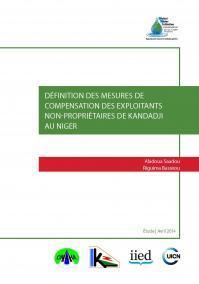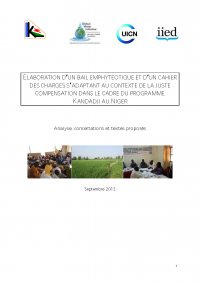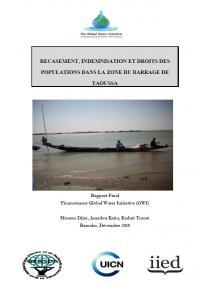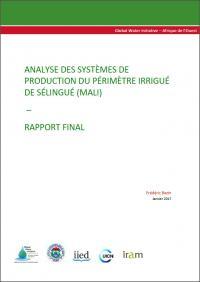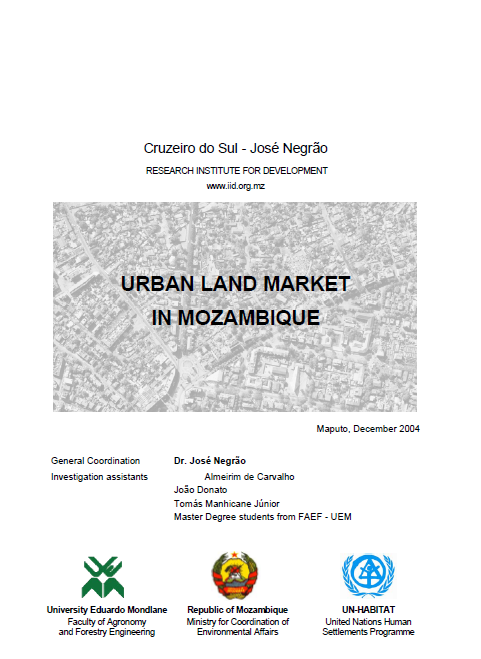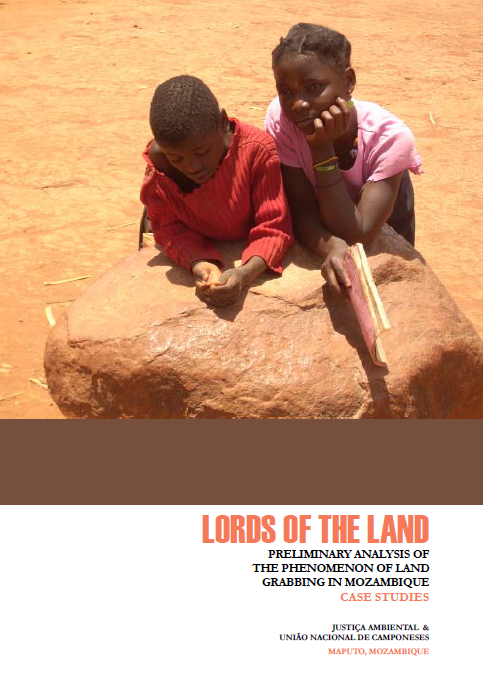Defining compensation measures for non-landowning producers at Kandadji in Niger
Construction of the Kandadji dam in Niger will involve, among other consequences, the appropriation of agricultural land owned by customary holders but also in many cases sub-holdings of other non-landowners. The government offered a long lease of 50 years for owners in compensation for their expropriated property rights.
How should the State compensate for the loss of the right of use by non-landowners farming land expropriated for the development of the Kandadji dam? This study aims to answer this question and proposes the use of a 'contract of occupation'.

